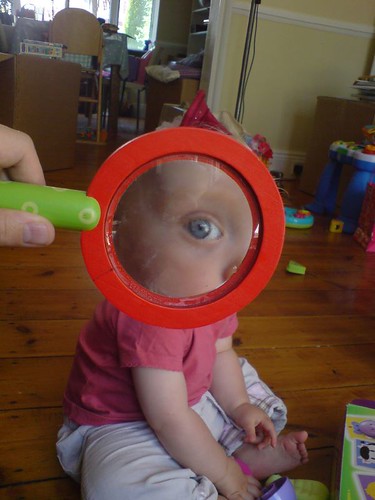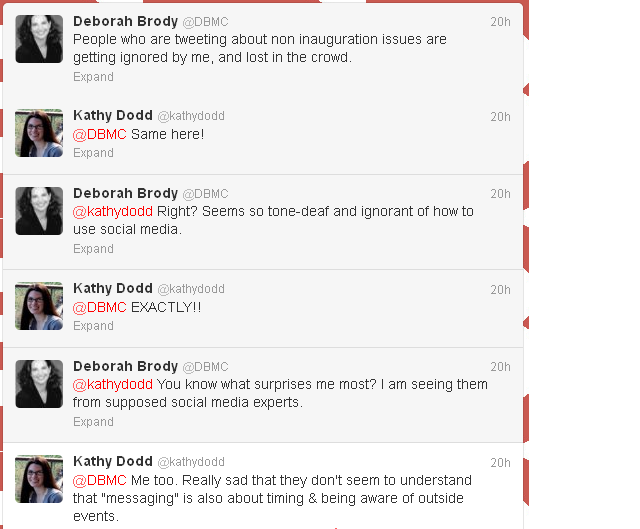Is it real or is it…a robot?
Imagine you’re having a party. You invite some friends and acquaintances. You crank up some music, put out some snacks and drinks, and your guests are milling around, having a good time. There’s a knock on the door and Rosie, the robotic maid from the Jetsons is there. She’s been sent in place of your friend Jane Jones. Jane is sorry she can’t attend but she is too busy. Rosie comes in and tells you that she has been instructed to follow people she might find interesting. She then starts walking behind a couple of your friends.

At some point, a group of you are sitting and discussing your upcoming vacation plans when suddenly Rosie chimes in and says: My latest blog post is about how to maximize user engagement. One of your friends asks Rosie to share her top tip on maximizing user engagement. Rosie is silent. Everybody goes back to discussing vacation planning.
This scenario happens every single day on Twitter, as busy people try to participate in the Twitter conversation via robot (also known as Twitter management).
Are you using a Twitter Management tool?
Last night, I was at an event (in real life) and saw someone I follow (and who follows me) on Twitter. I went over and said hi. She looked at me blankly. I explained we follow each other on Twitter. She kind of laughed and explained that she uses Commun.it, something that automatically follows people for her, and even tweets for her. So in essence, I have been interacting with a robot.
If your goal for Twitter is engagement, then having a robotic presence is a killer. I am not saying you shouldn’t schedule some tweets or use something to let you find people to follow. But if you are not participating in it personally, and you are basically “tweeting by proxy,” you are nothing more than Rosie Jetson–a robot bringing nothing to the conversation.
Perhaps you are too busy for Twitter
My thought is that if you are too busy for Twitter, perhaps it is not the best platform for you. Twitter is time intensive, no doubt. And if you use it well, you can develop real relationships with people all over the world. If you use it robotically, on the other hand, you get very little if anything from it. You may have a long list of followers and people you are following, but if there is no meaningful interaction, what is the point?
Do you use a Twitter management tool? Why or why not? If you do, what do you get from it? Please share in the comments.
Looking to jump start your blogging? Join me for the next How to Write Your Blog workshop, taking place on April 1 in Washington, D.C. For more details and to register, check out the Eventbrite page.
About Deborah Brody
Deborah Brody writes and edits anything related to marketing communications. Most blog posts are written under the influence of caffeine.







